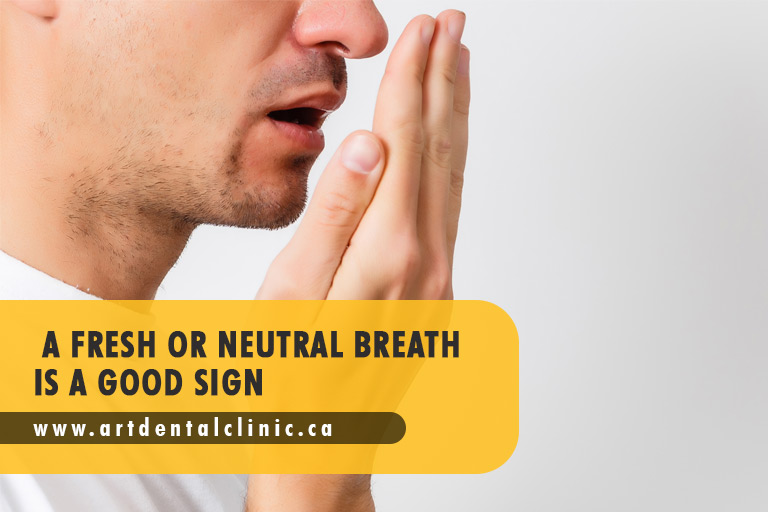Good oral health is important to an individual’s overall health and well-being. If you pay attention to your teeth and gums, you’ll find that the mouth serves as an indicator of the overall health of an individual, and certain oral symptoms can be indicative of systemic diseases.
While many people are aware of the warning signs of an unhealthy mouth, such as tooth decay and gum disease, they may not be familiar with the green flags of good oral health and would often ask, “What does a healthy mouth look like inside?”
Regular dental check-ups and cleanings, along with good mouth hygiene habits like brushing and flossing, can help you maintain good oral health and prevent more serious health issues down the road. Understanding the importance of good oral health and recognizing the signs of a healthy mouth is essential for well-being.
If you are unsure how to tell if your mouth is healthy, let’s take a look inside a healthy mouth.
1. Healthy Teeth
Your teeth are typically the first thing that people notice, and healthy teeth indicate good oral health. While it is commonly understood that teeth should be free of cavities, during dental examinations, dental professionals also evaluate other health-related factors of the teeth. To assess the health of the teeth, they examine a range of indicators such as staining, decay, fractures, chips, sensitivity, misalignment, and poor dental work.
2. Healthy Gums
Examine the condition of your gums carefully to see signs of healthy gums. Healthy gums should have a pink colour and feel firm to the touch, without any swelling or sensitivity. Redness in the gums may indicate poor oral hygiene and risk of gum disease, while pale gums may suggest anemia. Your teeth should also feel securely attached in their sockets and not show any signs of looseness or instability. There should be no pockets, flaps, or indications of gum recession.
Daily flossing is essential in maintaining gum health, as it helps to prevent the buildup of harmful bacteria in pockets and other areas that can lead to dental problems such as decay, damage, and bad breath. Your dentist will also examine your gums, along with reviewing your X-rays, to identify any gum pockets. The condition of your gums serves as a reliable indicator of your overall physical wellness.
3. Fresh Breath

Proper mouth health care is reflected in pleasant breath or a neutral taste in the mouth. While products like mouthwash, toothpaste, and mints can impart a pleasant smell, it is not a natural attribute of a healthy mouth. The presence of a foul odour in the breath may indicate the presence of bacterial pockets beneath the gums or untreated tooth decay. When flossing, it is crucial to pay attention to any unpleasant smells because the presence of smelly food particles during flossing may indicate the early stages of gum disease.
4. Proper Tooth Spacing and Jaw Alignment
Apart from examining your teeth, your dentist will assess how they fit into your mouth and jaw. Teeth that are correctly aligned and straightened are easier to clean through brushing and flossing. Additionally, when teeth are crowded or misaligned, it can affect your ability to chew and digest properly. Crowding can also cause bruxism (clenching or grinding), gum disease, and jaw problems, such as temporomandibular joint disorder (TMJ), which can lead to migraines and other neurological symptoms. In such cases, your dentist may suggest you consult with a certified orthodontist for further evaluation and treatment.
5. Proper Bite
In addition to proper tooth spacing and jaw alignment, in a healthy mouth, it is important that the upper and lower teeth fit together properly, allowing for even distribution of chewing pressure among all teeth.
The teeth in your mouth rely on each other for mutual support. When there are gaps, uneven bites, or crowded, crooked, missing, or misplaced teeth, it can negatively impact your ability to speak, breathe, maintain good oral hygiene, and digest food. Crowded or crooked teeth can be more difficult to clean, leading to dental health issues. Bite problems can also cause ear, head, neck, and sinus pain, as well as jaw problems such as clenching, grinding, and temporomandibular joint (TMJ) disorder.
6. Pink, Clean Tongue

A pink tongue with small bumps called papillae, which aid in tasting, indicates good health. The surface of your tongue should be smooth, level, and free of debris.
If not removed, bacteria in the papillae can multiply and become unhealthy. White lines, patches, or coatings should not be ignored. If you notice any of these signs, schedule a dental appointment. A painful or discoloured tongue may be a sign of canker sores, smoking, trauma, or irritants, but it could also indicate more serious illnesses. To maintain a healthy tongue, it is recommended to use a tongue scraper daily.
7. Smooth Oral Surfaces
Having smooth and clean oral surfaces is a sign that they are being brushed properly. Regular brushing, at least twice a day, can prevent the buildup of plaque, which is a sticky film of bacteria that can lead to tooth decay and gum disease. Flossing is also crucial for maintaining good oral hygiene, as it can remove food particles and plaque from between the teeth and gum line.
Neglecting to brush and floss regularly can result in a variety of dental problems, including cavities, gum disease, bad breath, and even tooth loss. Remember to establish a consistent oral hygiene routine to ensure the long-term health of your teeth and gums.
8. Healthy Oral Tissues
During a dental check-up, it is not only the teeth that are examined, but also other oral tissues such as the tongue, lips, and cheeks. Typically, the mouth’s tissues have a pink, firm, and moist appearance. The presence of symptoms like dry mouth, painful sores, swelling, or discomfort could indicate underlying health issues such as diabetes, heart disease, or thyroid problems.
A dentist is also trained to identify serious illnesses like oral cancer symptoms. If anything suspicious is found during the examination, the dentist will discuss it with the patient and suggest that they seek further advice from their primary care provider.
So, do you think you maintain good oral hygiene? If you feel like your dental hygiene still needs some work or are unsure how to know your mouth is clean, there is no need to panic. Art Dental Clinic has a team of dentists in Waterloo that will help you create an oral hygiene program to ensure that you achieve a healthy and beautiful smile. Call now at (519) 747-9797!

